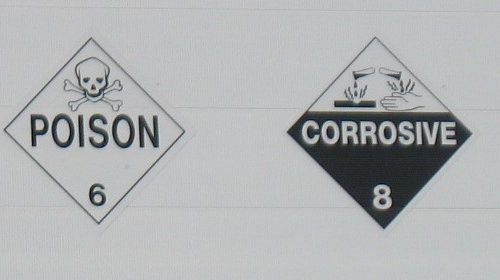Good News – Leviticus 8
An Overview of Lev 8
An Overview of Lev 8
Aaron and Moses were of the House of Levi. Aaron had four sons. It is generally accepted that Aaron and his sons were the first to be formally made priests. It is further generally accepted this is because Aaron served as the mouthpiece of Moses who was the mouthpiece of God. Aaron got this honor, it is said, because Moses “passed the buck” to Aaron all the way back the burning bush incident where Moses asked God to let Aaron speak for him to the masses. In any event, the order of priests were all descended from Aaron. Thus, all priests are Levites (Aaron was a Levite), but not all Levites were priests. That said, the entire tribe of Levi was set aside and inherited special duty in place of having tribal property. One might think of this as like saying the Levites were functioning as the government while the other tribes formed the actual society served by the government. The kind of government they had was obviously different than what any country today has, but if you think of it as the group responsible for public service, you get the general idea I’m trying to convey. And, in case you were wondering, the names of Aarons four sons were Nadab, Abihu, Eleazar, and Ithamar (Ex 6:23).
Priest’s Position
Lev 8:1-2 The Lord spoke to Moses, saying, “Take Aaron and his sons with him, and the garments and the anointing oil and the bull of the sin offering and the two rams and the basket of unleavened bread. Every step of the way God spoke directly to Moses. Through Moses, God gave all of the instructions to be carried out. Aaron’s responsibility was to do what Moses instructed. Aaron’s first, foremost, and in fact exclusive responsibility was service. The manner of service, whether ceremonial or practical, was always ultimately to service the other tribes. This was done through sacrifice, attending to the ark, mediation, and numerous other services to and for the other tribes. In one sense Levites and in particular the descendents of Aaron had special privilege with this honor, but in another they carried a grave burden for their brothers and they had to act with earnest and detailed submission to the will of God. They were to serve (Jn 14:15).
Priestly Ears
Lev 8:5 And Moses said to the congregation, “This is the thing that the Lord has commanded to be done.” God spoke to Moses. Moses relayed the information. The word given to the people and to the priests was the word from God Himself. Even if it came through the mediator, Moses, it was still originating with God. The people had to simply believe. Aaron had to believe. Moses had enough trust in God to know he could speak his heart, but also enough trust in Him as sovereign creator to know that as the created being, it was his place to ultimately submit to divine authority. The priests, Aaron and sons, spoke to God and heard from God, albeit through Moses as mediator. Later Christ would serve as our ultimate mediator (Heb 12:24).
Priestly Clean
Lev 8:6And Moses brought Aaron and his sons and washed them with water. As priests, Aaron and his sons had to be ceremonially sinless before they could enter God’s presence and perform the rites commanded by God. Moses, the mediator, cleaned the priests. He washed them with water. Water represents many things in scripture, but in my opinion this washing seems to represent baptism – water cleansing from sin (Mk 1:4,8). Of course the water does not literally remove sin, but it symbolizes the water of life (Jn 3:5, Jn 4:14, Rev 22:1,17) brought by Jesus.
Priestly Crown
Lev 8:9 And he set the turban on his head, and on the turban, in front, he set the golden plate, the holy crown, as the Lord commanded Moses. The priest was given a crown, much as a king would be. In a perfect theocracy it stands to reason that the man put in charge by God would serve as political leader as well as religious leader. Moses himself was the first great judge of Israel. Ultimately, Christ is given authority to judge among men (Jn 5:30, R2:16, 2 Tim 4:1). The high priest then rules much as a king as he judges and establishes law as handed down from God.
Priestly Anointing
Lev 8:12 And he poured some of the anointing oil on Aaron’s head and anointed him to consecrate him. To anoint means to smear, paint, or cover. To consecrate means to fill, confirm, accomplish, or satisfy. It is worth noting that the title Christ literally means Anointed One (Ps 132:10). The priest was marked in order to satisfy the requirement, confirming and accomplishing God’s will. These were outward indicators. At Pentecost the Holy Spirit came in power and anointed men spiritually. This fulfilled Jesus’ statement that the day would come when people would worship him in spirit and in truth (Jn 4:23-24).
Priestly Sacrifice
Lev 8:14-15 Then he brought the bull of the sin offering, and Aaron and his sons laid their hands on the head of the bull of the sin offering. And he killed it, and Moses took the blood, and with his finger put it on the horns of the altar around it and purified the altar and poured out the blood at the base of the altar and consecrated it to make atonement for it. A suitable sacrifice had to be chosen. The blood was sacrificed in place of life of the sinner because of the sin. The blood atoned for sin. Moses consecrated the altar with it, or in other words the blood filled and satisfied the altar’s requirement for purification and atonement from sin. One day Jesus would pour out his blood for the sins of the world, for all who would accept his sacrifice as their sin offering, and his sacrifice would be acceptable, complete for all time, making eternal atonement once and for always. (Jn 1:29, Ro 3:25, 1 Jn 2:1-2)
Priestly Submission
Lev 8:36 And Aaron and his sons did all the things that the Lord commanded by Moses. Aaron not only acknowledged God is God, but submitted to His divine authority. The very same person given the crown was humbled into sincere submission, putting God above all including himself and others.
Good News of Leviticus 8
1 Pe 2:9 But you are a chosen race, a royal priesthood, a holy nation, a people for his own possession, that you may proclaim the excellencies of him who called you out of darkness into his marvelous light. A priest is a servant. A priest listens to and hears God by whatever means God uses to speak. A priest is clean from a lifestyle of sin and instead lives a life with his spiritual thirst quenched by the only source of true water. A priest has authority given by God to judge and with the aide of the Holy Spirit the priest will have the wisdom to rule and judge rightly. A priest’s sins are covered by grace through faith and he is filled with the Holy Spirit. Before Christ the priests repeatedly offered animal sacrifices to atone for sin, but these sacrifices were only symbols. An animal’s blood could never atone for the fall of mankind. The blood sacrifice of Jesus Christ, however, satisfied the requirement to atone for the sins of the world. Jesus is our high priest and our sacrifice. We must accept his sacrifice if we are to have our sins atoned for. And finally, in spite of all a priest is given, a priest humbles himself before God. To truly understand the import of this statement, one must realize that this means serving Jesus by serving your fellow man. Loving God means loving people. It means care, compassion, and peace. It means standing up for what is right, avoiding temptation and facing our enemy. It means opening our hearts and our senses to discern Truth and to reject lies. It submits utterly to God, but is no pushover. It stands solid as a rock, but has a heart which is anything but rock. The good news of Leviticus 8 is that spiritually we all are given an opportunity to be priests, serving our high priest Jesus – and kings, serving our Lord of lords and King of kings, Jesus Christ. We are called from darkness to light by his power and his authority, by his grace and through his gift.




One Comment
thom.garrett
RE: Leviticus 8
Lance, you are correct, we are called to this vocation of a priest. Thanks for the overview.
"Ye have not choen me, but I have chosen you, and ordained you, that ye should go and bring forth fruit, and tht your fruit should remain, that whatsoever ye ask of the Father in my name, He may give it you." John 15:16 (KJV)
It is our responsibility to represent God to people (through the Gospel) and to represent people to God (by intercession, etc).
Thom.